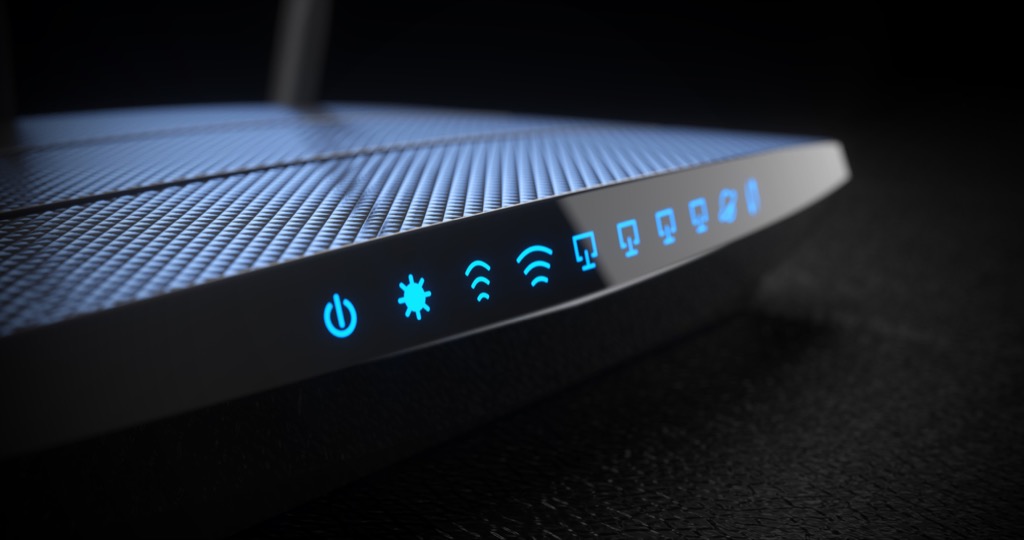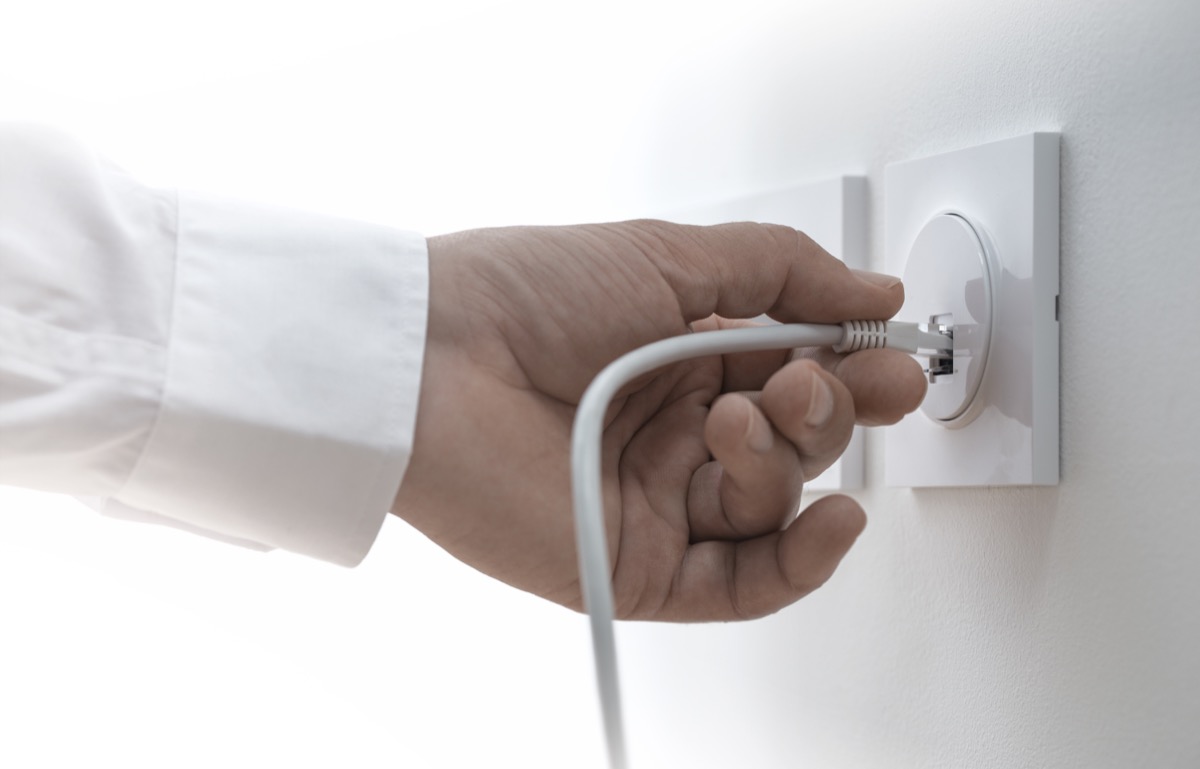7 Sneaky Ways You’re Slowing Down Your Internet, Experts Say

Having a fast internet connection means you’ll be able to browse apps, stream content, and download files with fewer interruptions and less buffering time. If you happen to work from home, as so many people now do, these small differences can quickly add up to make you more efficient and productive at your job. However, experts say there are several sneaky ways you may be slowing down your internet without realizing it—and all of them can be easily fixed if you know what to do.
Read on to learn the seven surprising mistakes you might be making at home that are tanking your internet speed.
RELATED: 7 Ways to Be More Productive in Your Home Office, Experts Say.
1
You’re streaming from multiple devices simultaneously.

These days, most homes contain a range of devices—desktop computers, laptops, iPads, phones, and more—which are all connected to the same internet provider. When you stream from multiple devices at the same time, it can drastically slow down your internet connection, experts say.
“If multiple family members are streaming HD or 4K videos, playing online games, or conducting video calls all at once, it can easily saturate the available bandwidth, leading to slower speeds for each individual device,” explains Tyler Cooper, editor-in-chief of BroadbandNow Research, which covers social, economic and political issues related to broadband technology. “This is one of the most common issues that we see come up, especially on older DSL or cable connections.”
2
Your hardware is old or inadequate.

Another common problem is having outdated or poor quality hardware—especially when it comes to your internet router.
“As internet speeds have increased over the years, older hardware may not be capable of handling these faster speeds,” explains Cooper. “Additionally, older routers might not support newer, faster Wi-Fi standards like Wi-Fi 5 (802.11ac) or Wi-Fi 6 (802.11ax), leading to reduced performance.”
Christen Costa, CEO of Gadget Review, says that you should always check with your internet service provider first to see if they’re having any widespread problems affecting internet speed. However, if that’s not the problem, he agrees that a malfunctioning or outdated router is likely to be to blame.
“A router sits between the modem internet access from your ISP and the devices in your home. Unfortunately, this means that a shoddy router will create a bandwidth bottleneck, limiting your internet connection’s maximum speed,” he says.
RELATED: 10 Home Upgrades You Should Make If You’re Over 65, Experts Say.
3
Your router is placed in the wrong location.

Where you place your router in the home can have a significant effect on how well it works, the experts say.
“Wi-Fi signals can be hampered by interference from other electronic devices or physical barriers,” says Cooper. “Cordless phones, microwaves, and even other nearby Wi-Fi networks can all interfere with your signal. Additionally, placing a router in a closet, behind thick walls, or far from the primary usage area can weaken the signal. Ensuring that the router is centrally located and away from interference sources can often improve connection quality.”
RELATED: 100 Funny WiFi Names Your Neighbors Will Never Forget.
4
Your device is running background processes and updates.

Sometimes your device is running multiple background processes without you realizing it—and these can slow your internet speed significantly.
“Many devices, especially computers and smartphones, will automatically download updates for apps, operating systems, and other software. These background downloads can consume significant bandwidth, leading to slower internet speeds for other tasks,” Cooper tells Best Life. “Regularly checking for and managing these updates can help alleviate this issue.”
5
You’ve got malware or unwanted software.

Like a biological virus, a virus on your computer is likely to present with certain symptoms. For instance, if you notice an abnormal number of pop-up windows, changes in your security settings, browser redirects, or diminished storage space, your device likely contains malware, says the anti-virus software company, Norton.
A significantly reduced internet speed can be another telltale sign that something is amiss.
“Malware, spyware, or other unwanted software on a device can eat up bandwidth by sending and receiving data without the user’s knowledge. Regularly scanning and removing such software can prevent them from hogging the internet and ensure a safer online experience,” says Cooper.
RELATED: How Turning Off Your Phone for 5 Minutes Can Protect You From Hackers.
6
You need a firmware update.

Firmware is a class of computer software embedded in the device’s hardware that controls its function and ability to communicate with other software on the device. If you’ve never heard of it before, chances are you’ve also never updated it before—and this could be slowing down your internet speed.
“Routers sometimes require firmware updates to maintain network speed,” notes Costa. “Keeping your router updated to the newest firmware version will result in consistent speeds and more secure network traffic. If your router has a 5 GHz frequency band, it will give you the best internet speeds for your wireless devices.”
For more tech tips sent directly to your inbox, sign up for our daily newsletter.
7
Your Ethernet port is damaged.

Ethernet-connected internet is typically faster than Wi-Fi, since the signal can’t be blocked by physical objects or electronic devices. However, Costa says that when you experience slow internet speed, your Ethernet ports could be to blame.
“Move your PC’s Ethernet cord to a different port and perform an internet speed test if you’re on a wired connection,” he suggests. “Your initial port is either dirty or damaged if you see improved speeds from a separate Ethernet port. If it’s completely unable, you might be better off getting a new router.”